What ‘double the funding’ means for communities
You read the headlines, see the big dollar amounts, nod approvingly that the investment is generous and the focus of the corporate philanthropy is for a good outcome. But when a large Australian company doubles its annual grant funding to charities and communities in one year – who makes that call on where the money goes and what does this kind of giving mean for Australian communities? We asked the Westpac Foundation and a handful of the 200 recipients of their community grants for 2017.
Westpac Foundation is a charitable organisation with a legacy that dates back 138 years. It was originally set up in 1879 by Thomas Buckland, and was known as the Buckland Fund. Inspired by his work as the President of the Bank of New South Wales, Buckland set up the foundation to support families of deceased bank employees who found themselves in financial hardship. The fund commenced with his initial donation of £1,000, which was a bonus he received for services to the bank.
In 1999 the scope of the Buckland Fund was expanded to support the wider Australian community, and it became known as the Westpac Foundation. Today, it continues to support community initiatives and social enterprises, by “borrowing the best from business and the social sector to create more opportunity for Australia’s disadvantaged.”
In September 2017 it was announced that the Westpac Foundation had doubled the amount of money they would grant in comparison to previous years – making it the largest funding round to date for the foundation. A total of $2 million was distributed to 200 organisations around Australia in celebration of Westpac’s 200th anniversary, and to reflect the foundation’s expansion into the Australian community.
That’s not an insignificant amount of financial investment when you consider that, according to the Australian Charities and Not-for-profit Commission’s 2015 data, there are 34,248 charities operating on incomes of less than $250,000 per year.
The funding was awarded to local community organisations that could demonstrate that they were taking a fresh and innovative approach to deliver against their mission of helping create a fairer, more inclusive Australia. The organisations that were nominated provide services to improve the quality of life for many people, including learning opportunities for Indigenous Australians, support for people impacted by family violence, assistance with mental health, shelter for people experiencing homelessness and employability programs for young people most at risk of being socially and financially excluded.
Westpac Foundation says the overall impact of this grants round will help almost 47,000 people. Translation? That’s about the size of towns like Ellenbrook in Western Australia, Port Macquarie in New South Wales and Gladstone in Queensland. It’s about one per cent of the population of Melbourne.
However, the method of decision making about who got the money wasn’t made in a boardroom by people removed from the issues at hand. Westpac customers, their staff, their suppliers and partners – in fact just about everybody living in Australia – had the opportunity to nominate an organisation that would benefit from the grant funding and 1400 nominations came forward.
So, who got the cash and how will they use it?
We gave some of the charities a call to find out.
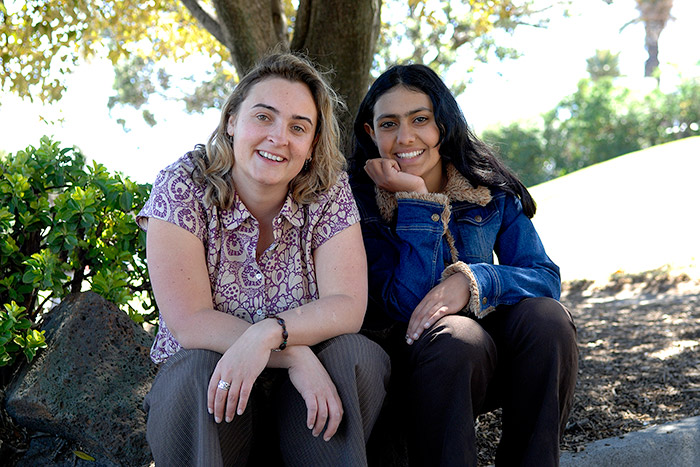
Big Brothers Big Sisters Australia Limited
Big Brothers Big Sisters Australia exists to unlock the potential and build brighter futures for vulnerable young people across Australia, through mentoring, specifically in Brisbane. The organisation’s Mentoring Hub matches young people to a positive adult role model. This process is quality controlled with thorough screening, training and monitoring.
They say that each time a vulnerable young person is paired with a mentor, they start a life changing relationship, built on friendship, trust, guidance and empowerment. This relationship is integral to inspiring young people to reach their potential.
In 2016 Big Brothers Big Sisters Australia had 814 mentor matches. Despite this, there are many young people still on their waiting list who cannot be supported due to lack of funding.
This grant will be funnelled into their Brisbane mentoring programs, which they use to build resilience and a sense of self-worth in young people. The programs help young people stay at school and improve their relationships with families and their community.
Their long-term goal is to match more vulnerable young people across Australia with mentors.
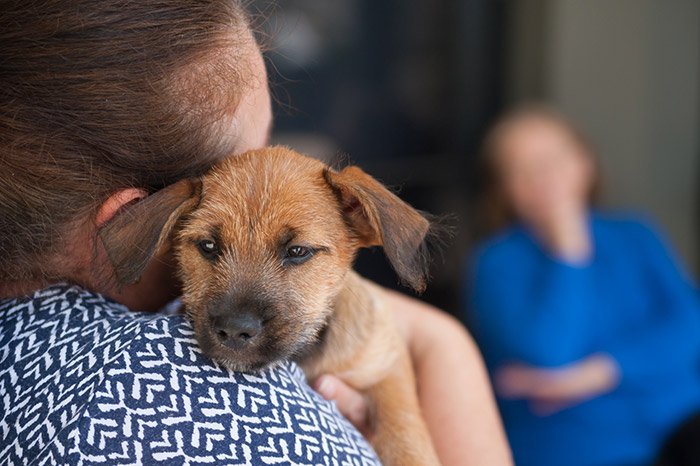
Happy Paws Happy Hearts
Predominantly operating in Queensland, but wanting to expand its reach to have national impact, this charity aims to help people reconnect socially – starting with animals. Those affected by social isolation, and its devastating mental health impacts, can include people with a disability, older Australians who feel lonely, or veterans suffering from post-traumatic stress disorder (PTSD). All benefit greatly from working with rescue animals for specialist training courses.
Happy Paws Happy Hearts will use this grant to deliver life-changing training specifically to Australian Defence Force Veterans, who experience debilitating physical and mental injuries. Held at the Brisbane RSPCA campus, this course engages veterans to work from Level 1: Learning Animal Language to Level 4: Problem Solving with Complex Dogs. Once they complete the course, the Veterans are able to become highly skilled volunteers for the RSPCA.
Whilst offering training and employable skills, this course is impactful because of the unique therapeutic outcomes it provides. Previous veterans have said that this course, and working with the RSPCA dogs, has kept them going from week to week.

The Indigenous Marathon Foundation
The Indigenous Marathon Foundation (IMF) is a national health promotion charity, founded by world champion marathon runner Robert de Castella. Established in 2009, the IMF uses running and physical activity to create inspirational Indigenous leaders, drive social change, and promote active and healthy lifestyles within indigenous communities to address the high incidence of heart disease, diabetes and obesity.
The IMF umbrellas four core programs:
- The Indigenous Marathon Project (IMP)
- Indigenous Communities for Activity and Nutrition (I-CAN)
- Deadly Running Australia (DRA) and;
- FrontRunners.
The Foundation relies heavily on corporate and community support to provide these programs, which are changing the lives of Indigenous Australians in remote, regional and city Indigenous communities across Australia.
The Westpac grant will contribute to one of the IMF’s major fundraising events, the annual Father’s Day WARRIOR Runs, which aim to celebrate great men, fathers and male role models, within indigenous communities.
As well as the usual event costs, these funds will be used to provide free entry for low-socio economic participants and to encourage community participation. There are currently up to 12 WARRIOR Runs taking place in Indigenous communities each year, which are initiated and managed by IMP Graduates, and attract approximately 2000 people.
At the end of the run, all participants are awarded with an exclusive medal featuring an IMP Graduate. In 2017 that Graduate was Harold Matthew, who became the first Indigenous Australian to complete the Virgin Money London Marathon earlier this year; proof that this program really does work.
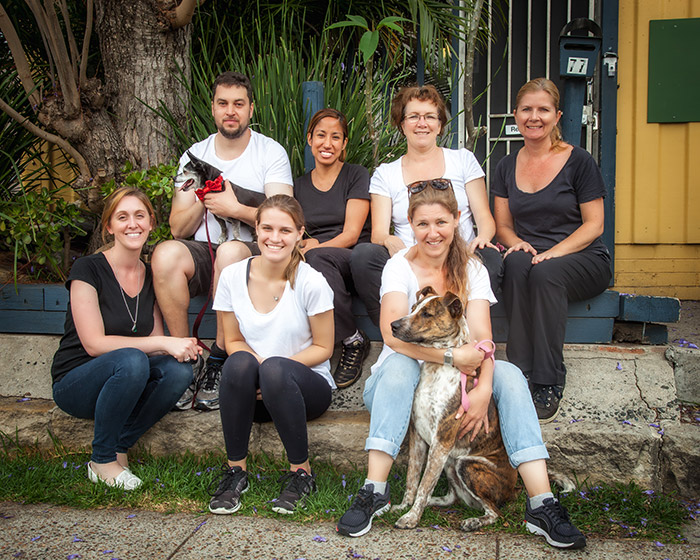
Sydney Dogs and Cats Home
Incorporating animals into therapeutic practice isn’t a new idea – but it’s a very effective one. The Sydney Dogs and Cats Home exists to provide a second chance for lost or abandoned pets by pairing them with at-risk members of the community. The desired outcome is that the person and pet rescue each other, through the charity’s community-focused programs, which are run in partnership with organisations in aged care, mental health, disability care, asylum seeker services and study placements. Sydney Dogs and Cats Home takes in over 3000 animals and operates with a staff of 15 and 500+ volunteers. They are swiftly outgrowing their existing premises.
As Sydney’s only charity pound, they will use this grant to expand their current community programs, to help unemployed young people gain work experience. They have found that these programs benefit the community through the improvement of mental health and education, whilst also benefitting the animals by providing them with the best possible care, before finding their forever homes.
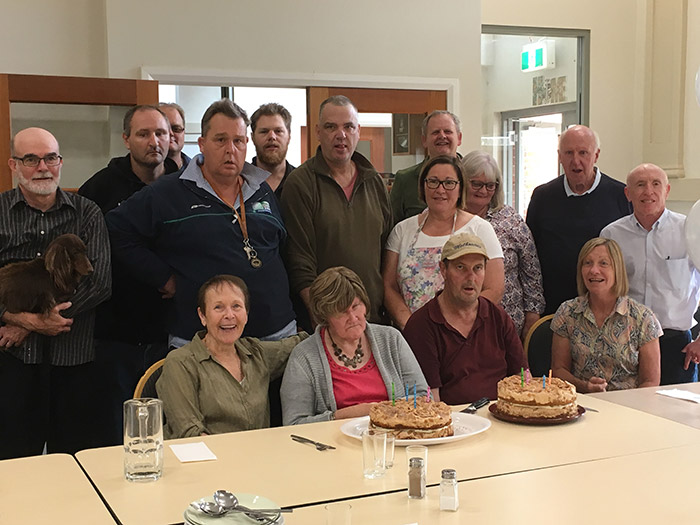
HOME in Queanbeyan
HOME is a fantastic example of community coming together to give back. This charity provides 24 hour supported accommodation for residents living with mental illness, who struggle to live independently or may be at risk of homelessness. The idea was born within the Queanbeyan community and HOME was officially opened 6 years later, welcoming some of its most vulnerable citizens. Rather than handing out charity, HOME aims to build a sense of self-worth and dignity within their residents, whilst supporting them to live productive and meaningful lives within the community. With no recurrent government funding, the generosity of the community and business is integral to the longevity of HOME.
There are currently 6 staff and 15 volunteers.
Every Thursday and Saturday, the HOME staff provide a cooked meal for their residents. This provides an opportunity for the residents to socialise amongst themselves, as well as receive companionship from staff.
This grant will be used to ensure these hot meals can continue to be provided. Funds will be used on purchasing food, as well as operating costs including electricity, gas, rent and insurance.
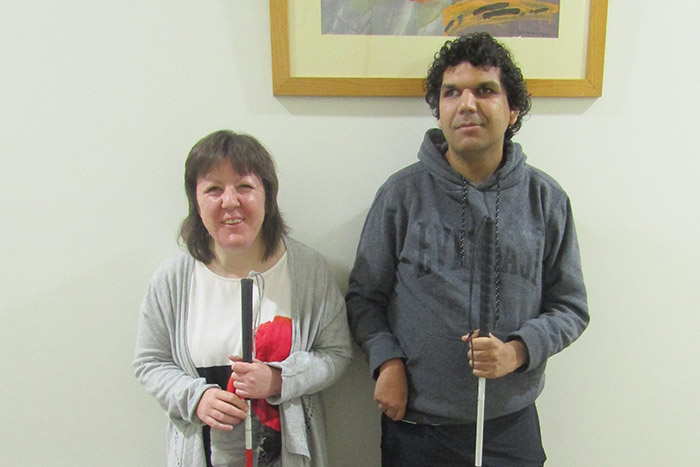
Griffith Post School Options (GPSO)
Independence is something most of us yearn for after completing our education. In Yangooli, NSW, Griffith Post School Options supports people of all ages with intellectual and physical disabilities after they finish school. The aim is to ensure they too can develop independence, and feel empowered to become a valued member of the community. GPSO offer a wide range of programs ranging from in-home support and driving lessons, to employability skills, literacy, numeracy and IT.
GPSO has 26 employees and 3 regular volunteers.
This grant will be used to replace a broken Braille writer and to purchase a printer and associated software.
The Braille writer is a very important piece of equipment for GPSO. Service users who have learned Braille will be able to practice and improve their skills, as well as write to friends. Other community members and school aged children, with vision impairments, will also have access to the Braille machine and Braille classes.
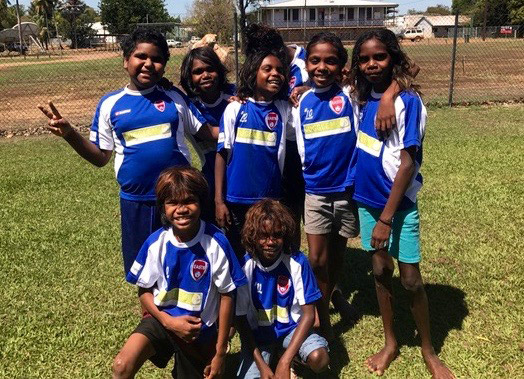
Kit Bag for Kids
We all know how important sport is in promoting healthy physical and mental wellbeing in children, as well as a sense of purpose. By providing sports clothing and equipment to disadvantaged school children, Kit Bag for Kids works to ensure no Australian child misses out on the opportunity to play sport. Donations gathered from local sporting clubs and the public are sent to remote communities, ensuring no child forgoes their participation “due to the lack of a footy shirt or a pair of boots.” They are entirely volunteer run, by four hardworking individuals.
Kit Bag for Kids will use this grant to help pay for storage, transport and mailing costs, and to raise broader awareness of the program, which in turn should increase donations and help offered by local sports clubs. They will also widen their beneficiary base, by locating more remote schools and groups that could use their support.




